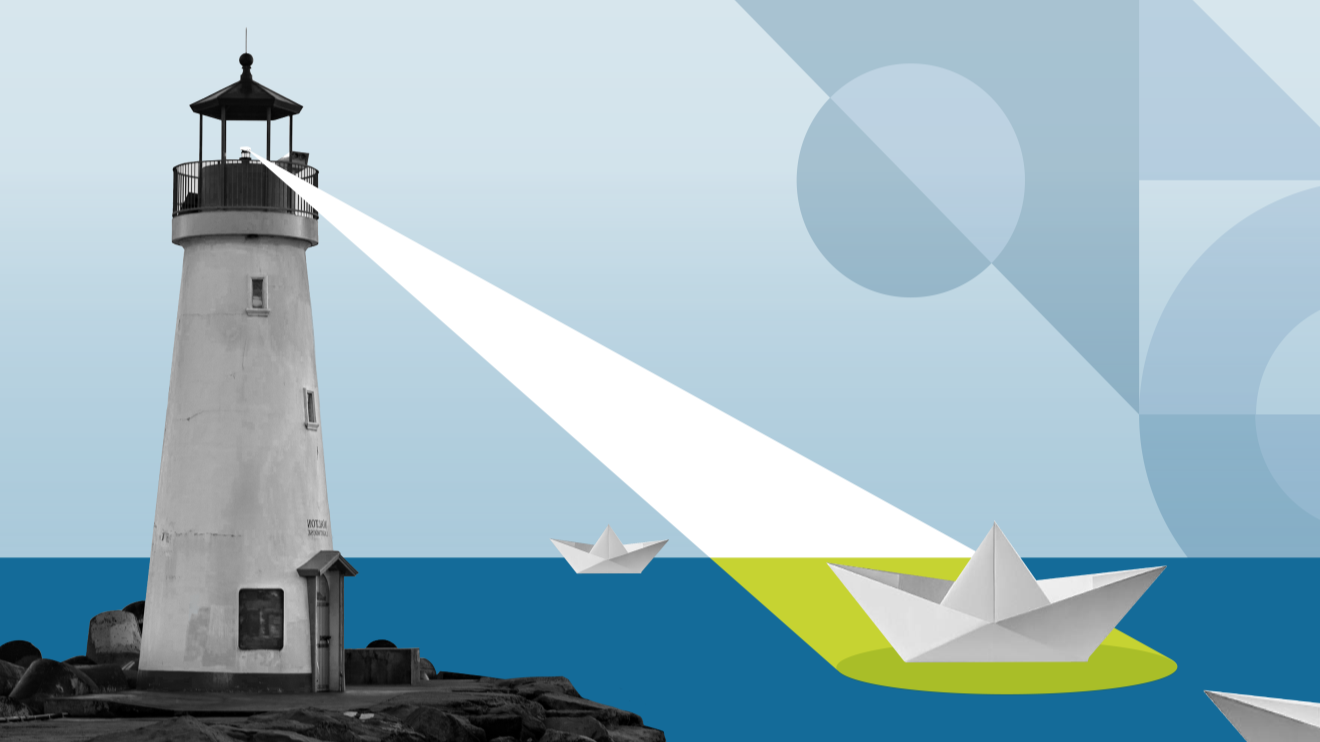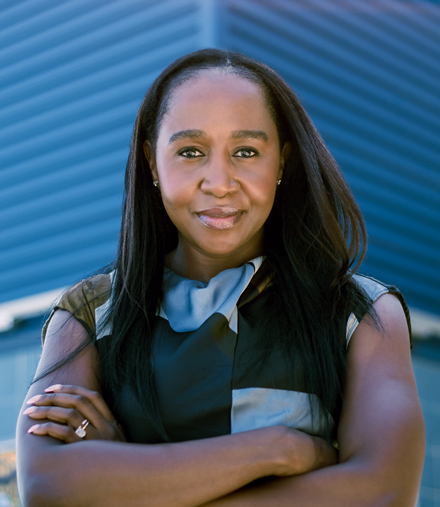B2B Brand Awareness: Why It Matters & How to Build It
Your business might offer the best products and services, but none of that will matter if you lack brand awareness. In this podcast, Chris, Charity and Bo discuss the importance of brand awareness in the B2B landscape. Discover brand awareness tactics, channels and benefits, and learn about the differences in application between B2B and B2C.
Table of Contents
- Brand Awareness in B2B Versus B2C
- Benefits of B2B Brand Awareness
- Effective Tactics for B2B Brand Awareness
- How to Measure the Effectiveness of B2B Brand Awareness
- Common Challenges for B2B Brand Awareness
- Examples of Effective B2B Brands
This transcript has been edited for clarity and readability.
Q: Why is brand awareness particularly important in the B2B space compared to B2C?
Charity Ndisengei: In B2B, brand awareness forms the foundation of brand equity. It's how potential customers and stakeholders recognize and recall your brand, impacting the business's valuation and credibility.
Bo Bothe: B2B transactions are less frequent than B2C, but they’re also more intense: you’re managing ten critical deals a year rather than selling millions of consumer goods. Brand awareness in B2B becomes pivotal because touchpoints are less frequent, making every interaction crucial.
We learned that when we did the convenience store rebrand for Stripes. Stripes was on every corner in Texas, so recall was 95 percent finished immediately. However, with a B2B brand, that kind of presence isn't as available unless you have a thousand trucks on the road.
Charity: Brand awareness is fundamentally about recall in both B2B and B2C. However, in B2B, it leans more on logical connections, such as why companies should partner with you, building trust and demonstrating credibility through facts and research.
Bo: While emotion plays a role in both, B2B branding focuses more on the consequences of choosing the wrong partner, impacting business performance significantly. The emotion piece is a lot bigger in the B2C world because of the commoditization of things and how frequently I can buy something, whereas if I buy the wrong valve for a B2B contract, I could screw up my whole project. In B2C, it's more about emotional association, like brand loyalty to a beverage.
Q: What are the benefits of generating brand awareness in B2B?
Charity: B2B brand awareness leads to better-qualified opportunities, thus reducing operational costs as sales teams can focus more on closing deals rather than chasing leads. This efficiency often results in higher profitability and shorter sales cycles.
It also builds trust and credibility over time. Your brand becomes a go-to option, which can significantly shorten the long decision-making cycles typical in B2B industries. Over time, as you tell people what you do and showcase some of the proof points behind what you've accomplished in the past, you build that trust with other people who want to look for the same service.
Chris Wilks: B2B brand awareness removes some of the hurdles to establishing a business relationship. If someone already knows your brand, you're almost prequalified: We know what they are, who they are, and what they like.
If there’s a shortlist, you might already be on that list through brand awareness. If someone doesn't have brand awareness, it's a cold call. It's getting out there, out on the pavement. It's a little bit tougher to get past the hurdle and onto the list.
Bo: Timing is a big deal: hitting the right person at the right time. And I think that's the biggest challenge on the B2B side— I may have a project I do once every five years. And if I'm not in front of the customer, I don't exist.
“B2B brand awareness leans more on logical connections, such as why companies should partner with you, building trust and demonstrating credibility through facts and research.”
Q: What are some effective tactics and channels for generating brand awareness in B2B?
Chris: It's critical to understand your audience and where they consume information. For instance, trade publications, industry podcasts, Reddit communities for specialized fields and LinkedIn are highly effective platforms for different B2B markets.
Depending on who's buying your product, you may be able to get narrow and select a targeted trade publication. If one industry really loves our ball bearings, even though we could sell it to 50 different industries, we might choose to publicize ourselves to a specific audience. Or, you might be able to get away with a broadcast ad or something like that if it’s a sufficiently ubiquitous product.
Charity: Content marketing is also a huge tool for B2B brands. Thought leadership, social media engagement and PR are crucial. Reliable channels like LinkedIn and sometimes Twitter for instant updates and thought leadership articles amplify your reach and credibility.
Bo: Integrated approaches are essential. The medium matters significantly in B2B, as the channel itself can establish credibility or diminish it based on audience perception.
Q: How do B2B companies measure the effectiveness of their brand awareness?
Chris: The real value of B2B brand awareness that you can track will be the overall increased efficiency of your sales over time. While there isn’t any single metric that will provide the answer, you can start to get a holistic view of the ROI of your brand awareness through various key metrics.
Track metrics like lead quality, reduced sales cycle duration, higher conversion rates, and lower cost per acquisition. Also, look at overall website engagement metrics, such as time on site and page views.
Charity: You can also conduct brand lift studies and share-of-voice measurements. Observing long-term impacts, like higher brand recall during critical market decisions, also indicates effective brand awareness efforts. These can go hand-in-hand with web metrics to get a better understanding of your B2B brand’s awareness.
Bo: Over time, look for indicators like reduced operational costs, a decrease in required sales hours due to more qualified leads, and overall higher brand mindshare to gauge long-term effectiveness.
Charity: One thing that gets overlooked is the long-term effect of brand awareness. The Ehrenberg-Bass Institute of Marketing Science did a study just after the 2008 financial crisis. They looked at the brands that invested in brand awareness over time, leading up to the financial crisis and those that didn't.
It proved that brands that work or invest in continual brand awareness bounce back significantly faster than ones that don't. So, while you might not see this almost immediately in your ROI, over time, investment in brand awareness is absolutely imperative for your brand's well-being.
Q: What common challenges do B2B companies face when trying to build brand awareness?
Charity: Limited budgets, particularly in marketing, and the difficulty of measuring direct ROI from brand awareness investments are significant challenges. Often, B2B companies also lack the robust marketing teams that B2C companies have.
It's difficult to grow an organization without investing in it, so that's always a challenge. But by considering how investing in brand recognition can provide long-term benefits to the organization’s growth, you start to realize how worthwhile an investment it is.
Bo: The systemic issue is that B2B brands have traditionally not allocated large budgets for branding, making it harder to justify significant spending now. Communicating the long-term value and integrating brand awareness into their core strategy remains an uphill task.
It’s sales overnight, brand over time. But the integration of branding and sales becomes increasingly important to understand how customers are engaging with your brand and developing a perception of your brand.
Q: Are there any examples of B2B brands that do a good job of generating brand awareness?
Chris: For me, the Intel jingle sticks in my head, and is easily recognizable. Even when it’s tagged onto the end of a Dell commercial or something else, I know that brand well and it does a good job of making its importance known via brand marketing.
Charity: HubSpot and Salesforce are exemplary, particularly in thought leadership and industry engagement. They produce a large amount of content to showcase their expertise in their fields and host events to position themselves as stewards of entire industries. GE also excels through strategic partnerships, alliances, and substantial digital campaigns.
Bo: In the oil and gas industry, brands like Granger and Fastenal have become synonymous with reliability for many industrial needs. Their longstanding presence in trade shows and consistent engagement in industry-specific channels has cemented their reputation.
Chris: GE, Granger, IBM, all these companies are fairly ubiquitous in their brand recognition. So the proof is in the pudding: when you invest in your brand, it creates more recognition, even among people who don’t necessarily work closely with your company.





